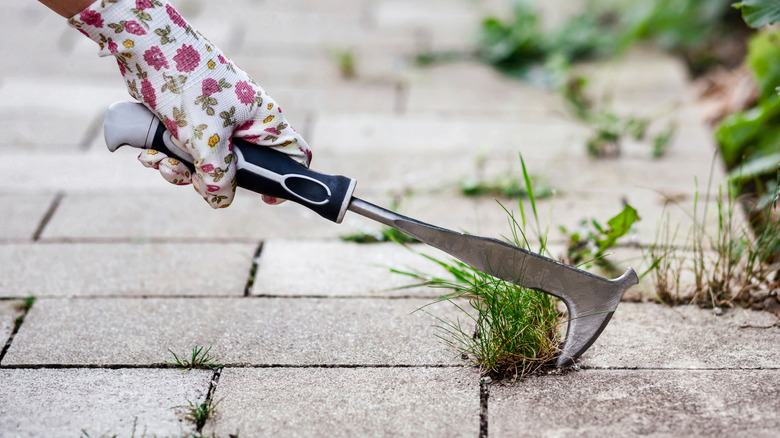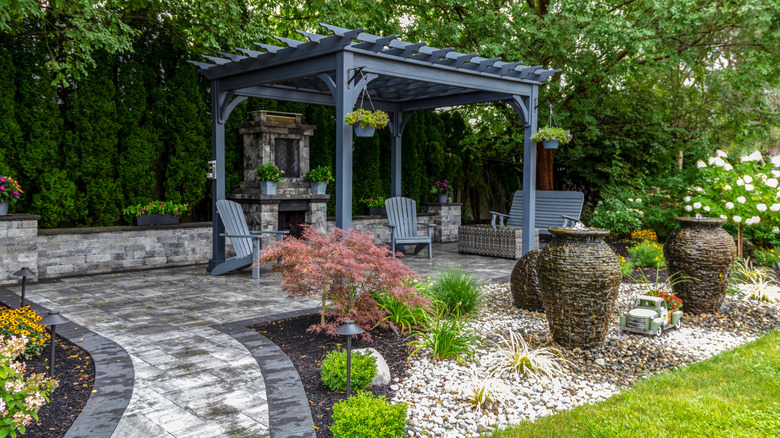The Surefire Way To Keep Weeds From Growing Between Pavers
We may receive a commission on purchases made from links.
Uses for pavers in landscaping are as varied as the plethora of styles and designs on the market. They can elevate your outdoor entertaining space or garden when turned into a brick paver patio or used as a material to build a brick paver garden path or walkway. Walkways and garden paths can take your home's curb appeal to the next level. In some cases, a paved path can improve safety, especially if it connects two areas that will be heavily traveled, like between a driveway and an entryway. Larger pavers can be used to create a patio to surround a fire pit, providing a cozy and stylish spot for entertaining guests.
Whatever your project, you want to keep it looking beautiful year-round, and the best way to do that is to keep it weed-free. We all know that is much easier said than done. Weeds are spread in many different ways and come from many different sources. Weed seeds can be spread by yard machinery, wind, birds, other animals, or your shoes. Some weeds even lie dormant in the ground until landscaping brings them to the surface where they can get the sunlight and nutrients they need to flourish. You can take steps to prevent them from sprouting among your pavers by preparing your project area with a thick base or applying a polymeric sand, but regularly maintaining your lawn and ensuring your pavers are free from debris is the best way to keep them at bay.
Regular lawn maintenance will help keep weeds from growing between pavers
There are a few methods for keeping weeds from growing in a patio or walkway. Start by keeping them from getting there in the first place. You can do this by frequently sweeping the area to remove seeds before they can germinate. Also be careful to not blow grass cuttings toward the area, as seedlings may be mixed in with it.
The easiest way to control weeds between pavers, though, is by keeping weeds under control in your lawn. As a general rule of thumb, the first line of defense against weeds should be to keep your lawn healthy. Lawns that are well fertilized and watered are difficult for weeds to invade, but the odds are never zero. When a weed does rear its ugly head, either pull it by hand or spray it with an herbicide to keep it from spreading. Selective herbicides will kill some plants (like weeds) without harming other species (like your grass). Nonselective herbicides will kill everything. Roundup Weed and Grass Killer is a well-known version of a nonselective herbicide, and this type of weed killer can be very effective at spot-treating weed growth between paver stones. Be very careful not to use this type of herbicide around plants you want to keep, though. If you'd rather keep use a natural herbicide, try using vinegar and salt to kill weeds.

